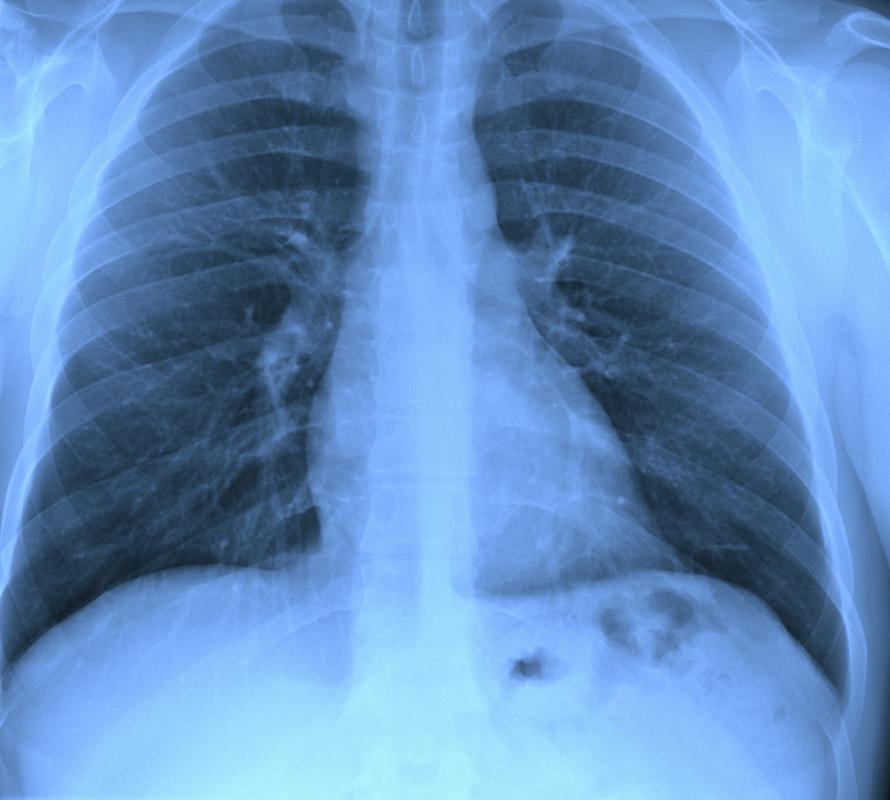At TheHealthBoard, we're committed to delivering accurate, trustworthy information. Our expert-authored content is rigorously fact-checked and sourced from credible authorities. Discover how we uphold the highest standards in providing you with reliable knowledge.
What Is the Average Lung Cancer Life Expectancy?
The most common questions physicians receive after delivering the news that a patient has lung cancer are about life expectancy. Lung cancer life expectancy depends on many variables, including overall general health, patient age, treatment tolerance, and how advanced the cancer is at the time of diagnosis. Based on these factors, lung cancer patients can expect a wide range of prognoses, from complete cure or remission to a few weeks left to live. Though only a medical professional can determine with some certainty how a patient is responding to treatment, general life expectancy guidelines are based on type and stage of the cancer when diagnosed.
Lung cancer life expectancy varies, depending on the stage. Staging is a method used to identify how advanced the cancer is and whether it has traveled to other parts of the body. In addition, the type of cancer and general overall health of the patient play a part in the stage identification.

Different types of lung cancer have different life expectancies, due to the ease or difficulty of treating them. Patients with non-small cell lung cancer, for example, have a significantly higher survival rate than small-cell lung cancer patients. Gender also comes into play when it comes to the life expectancy of someone with lung cancer. In all stages of the disease, women typically have a longer life expectancy rate than men.

Age at the time of diagnosis can make a difference, regardless of the type of lung cancer. Younger patients typically survive longer. This is due in part to their overall better health and ability to withstand treatment options. General overall health plays an important role in lung cancer life expectancy because a healthier person is better able to get through aggressive treatment.

Non-small cell lung cancer is either squamous, which means it is in the airway cell linings, or non-squamous, involving cells outside the linings. Fifteen percent of patients have small-cell cancer. It is a very aggressive and fast-moving disease, with the best life expectancy for younger patients in early disease stages. Overall, treated patients with this type of lung cancer have a two to 30 percent chance of surviving the next five years. Left untreated, most patients die within a year.

The stage of lung cancer in all types, including non-small cell lung cancer, plays a part in estimated survival rate. Stage IV lung cancer patients typically have less than a two percent chance of surviving five years; however, there have been exceptions. Patients in stage III at the time of diagnosis typically live 13 to 15 months after they are diagnosed. Young patients, women, and patients in excellent health, other than the cancer, often survive longer at all stages of the disease.

Survival rates for stage I cancer are 60 to 80 percent after five years. Stage II cancer patients have an average survival rate of 40 to 50 percent. Treatment choices, age, and general health play a role in which end of the statistical data a patients lands on.
All lung cancer life expectancy is averaged with different treatments and other factors. For example, 57 percent of patients ineligible for surgery and who have radiation alone are still alive in one year. Thirty-six percent are alive in two years and 21 percent are still alive in three years. When combining tumor therapies like thermal ablation and radiation, 87 percent are alive in one year, 70 percent in two years, and 57 percent in three years.
AS FEATURED ON:
AS FEATURED ON:
















Discussion Comments
@anon296467: Honestly, there's just no predicting. There are so many factors to consider, including how well any chemotherapy or radiation works. Her doctor could probably give you a better answer.
My advice would be to appreciate every moment you have with her, no matter how short or long that time is. I will certainly keep your sister and all of you in my prayers.
My sister has just been diagnosed with spleen, liver and lung cancer and she starts treatment in six days' time. Will you be honest and tell me how long will it take for her to pass away, if she does? She finds it hard to breathe at times.
Post your comments